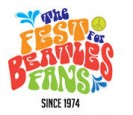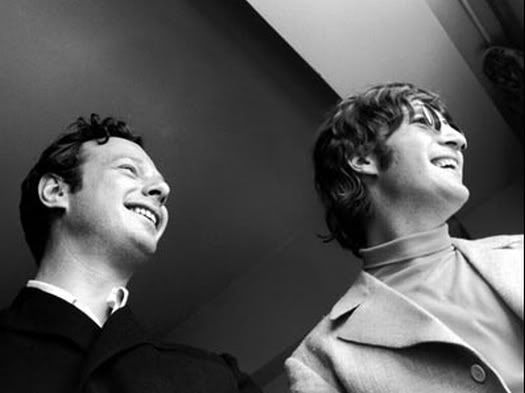The most overlooked and misconstrued song on Revolver is “And Your Bird Can Sing.” Far-flung explanations for John Lennon’s seething lyrics point to John’s purported jealousy of Frank Sinatra or his irritation over some failed one-night stand. But a deeper examination of the song reveals a more practical root for “The Leader Beatle’s” ire. Let’s take a look.
No one “did anger” the way John Lennon did it. (To wit, “Run for Your Life,” “You Can’t Do That,” “I’ll Cry Instead,” and “How Do You Sleep”). When provoked, John had no problems articulating indignation. He had “a chip on his shoulder that [was] bigger than his feet,” and John was never reluctant to let those who irked him “have it,” with both barrels.
In “And Your Bird Can Sing,” John is not only angry and frustrated; he’s deeply hurt. In this second song on Side Two of Revolver, John is speaking directly (and harshly) to someone he knows – someone very close to him, someone whom he feels has betrayed his trust. We know this is the case because John vows in the bridge that no matter how cruel the person is to him,
“Look in my direction,
I’ll be ’round; I’ll be ’round.”
In other words, John has no intention of turning his back on the offender. Despite his perceived disloyalty demonstrated by the former friend, John will always be there.
So, who is the “bad guy” in this scenario, and what did he/she do? Well, as the song unfolds, John gives us numerous (though cryptic) clues to the betrayer’s identity:
- The person has “everything he wants.” (i.e.: He’s well-to-do: living in a chic locale and driving a prized car. He’s making headlines, rubbing shoulders with the rich and famous, and succeeding in his powerful career.)
- The person has “seen Seven Wonders.” (He’s well-traveled. He’s seen the world from the Spanish Riviera to the width and breadth of North America to exotic Hong Kong, New Zealand, and Australia. In John’s eyes, this person has seen it all, done it all. He’s far more cosmopolitan than John, far more polished and experienced).
- The person purports to “have heard every sound there is.” (This tidbit clues us into the fact that the individual in question is involved in the music industry. However, John’s legendary sarcasm here hangs on two words: “you say.” John is smirking as he hisses, “You say you’re a music expert. You say you’ve heard every sound there is.” We get the feeling that the individual to whom John is singing has made unwelcome suggestions to John about his compositions or performances).
- The person has quirky, idiomatic tastes. (Well, after all, his bird is green…which leads us to perceive him as exotic and singular for his day).
- Finally (and most significantly), this individual is extremely important to John. In fact, according to the lyrics, at an earlier point in their relationship, John wrongly assumed this person, “got him,” understood him, “heard him,” “saw him.” Now, in the sunless backlash born of faithlessness, John is striking out via verbal attack.
So…who can it be now? Who fits this five-point profile?
Who had a very intimate relationship with John – so deep that he shared John’s secrets and trusted John with his own? Who had been so close to John that it was rumored by mutual associates such as Yankel Feather and Joe Flannery that a possible love affair might exist between the two? Who had been John’s advocate before possessions, world travels, the myriad demands of business, and the intricate web of power struggles set in? If your answer is “Brian Epstein,” then we’re on the same page.
It is the reference to the “green bird” that really highlights Brian’s identity for us. In Liverpool’s Scouse lingo, a “baird” is a term for a girl or a girlfriend. And “to swing,” in the 1960s, meant “to step out from the norm sexually.” Thus, John’s reference to his friend’s unusual “green bird” – a bird who “swings” – was, in all likelihood, a Lennonistic dig at Brian’s gay relationships. On The Anthology version of this song, when Paul and John sing, “and your bird can swing,” they snicker naughtily at their sly double entendre. Wicked schoolboys both, they are being naughty.
If we agree that John is, in fact, addressing “Eppy” in this song, a second question immediately arises: what on earth would have caused John to become angry enough with Brian that he penned this attack – a song only slightly less hostile than “How Do You Sleep?” Well, let’s think back:
By 1966, John yearned to stop touring. All of The Beatles did. And although they had expressed that sentiment to Brian over and over again, he had completely ignored them, turned a deaf ear to their pleas. While this was frustrating for Paul and George, it was a personal wound for John.
You see, in December of 1961 – upon assuming management of The Beatles – Brian had pledged to Mimi Smith that no matter what happened to the other boys, he would always protect John. He had vowed to work tirelessly to defend her nephew’s best interests. Always. But now, John feels that Brian has stopped putting him first. Consumed with desire for wealth, fame, and power, Brian (John thinks) is pushing The Beatles too hard – callously demanding new films, tours, singles and LPs, interviews, radio shows, television programmes, and personal appearances. As John might have phrased it, “He wants work without end, amen!” And once upon a time, long, long ago…Brian had promised better.
Hence, “And Your Bird Can Sing.”
“You don’t hear me!” “You don’t see me!” “You don’t get me!” John lashes out with real invective, linking each verse with the string of repeating accusations. John sees Brian’s refusal to address his needs as an infidelity.
This song, therefore, fits snugly into the “broken relationships” theme of Revolver. Originally entitled, “You Don’t Get Me!” it shatters the giddy mood of “Good Day Sunshine” and shoves us back into Revolver’s agonies. Track Two, Side One gave us “Eleanor Rigby.” Here, in Track Two, Side Two, John and Brian are “the lonely people,” standing in a church of broken promises, surrounded by memories from May of 1963, when they vacationed on the Spanish Riviera. During those days, John and Brian had formed a bond — a friendship born of shared vulnerabilities rarely voiced to anyone else. They had reached out to one another in mutual trust. Now a mere three years later, John is spewing fury over his perceived loss of that trust while Brian steadily continues to pursue the course he feels The Beatles must follow.
But for John, having “everything you want,” “seeing Seven Wonders,” “knowing every sound there is,” and owning an exotic green, swinging bird means nothing if, in the process of garnering such success, you sacrifice a friend. Frustrated and fuming, but promising to “be ’round” when Brian finally hears him, sees him, and gets him once again, John and the others are (for the moment) hanging on. However, the unresolved chord at the end of this song reminds us that in the future, anything can happen.
Sadly, by August 1967, anything did. Fame exacted its price. And the birdsong fell silent.
Jude Southerland Kessler is the author of the John Lennon Series: www.johnlennonseries.com
Jude is represented by 910 Public Relations — @910PubRel on Twitter and 910 Public Relations on Facebook.










